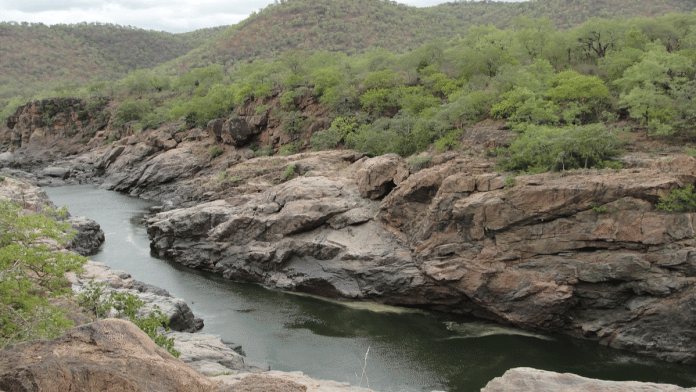New Delhi: Karnataka is not obliged to and cannot be compelled to ensure water supply to Tamil Nadu, the state has said in an affidavit before the Supreme Court, citing the failure of the Southwest monsoon and the distress condition that has arisen in its portion of the Cauvery basin.
Karnataka’s affidavit comes a day before the Supreme Court is scheduled to hear an application filed by Tamil Nadu demanding that it be given its fair share of Cauvery water.
The governments in Karnataka are led by political allies Congress and DMK, respectively, who are also part of the larger INDIA coalition. However, Cauvery watersharing is a decades-old dispute that is highly emotive in both states.
Citing the monsoon deficit, Karnataka has said in its affidavit that it is not under obligation to release water prescribed for a normal year, which is 9.19 thousand million cubic feet (tmc, used in reference to volume of water in a reservoir or river flow) in June, 31.24 tmc in July, 49.95 tmc in August, 36.76 tmc in September, 13.78 in October, 7.45 tmc in November and 2.76 tmc in December.
The Siddaramaiah-led state quoted from the Cauvery tribunal’s final pronouncement made in 2018 — affirmed by the Supreme Court — to say that in case the “yield of Cauvery basin is less in a distress year, the allocated shares shall be proportionately reduced”.
A normal monsoon year is when the total yield in Cauvery basin is 740 tmc. This year, the affidavit says, the inflow into the four reservoirs in Karnataka was 42.5 per cent lower, as recorded by the Cauvery Water Management Authority (CWMA).
The CWMA was set up after the Cauvery tribunal finalised the watersharing arrangement between Karnataka and Tamil Nadu, with an objective to monitor the implementation of the tribunal’s decree.
The M.K. Stalin government moved the apex court after the CWMA asked Karnataka to release 10,000 cusecs (roughly 0.9 tmc) per day of water to Tamil Nadu, against the latter’s demand for 24,000 cusecs per day.
In its application, Tamil Nadu has sought immediate judicial intervention to save its Kuruvai rice crop, which, it has said, would not survive due to water shortage.
However, Karnataka is not ready to even release the water quantity fixed by the CWMA.
According to Karnataka, Tamil Nadu’s prayer to ensure the “stipulated release” from September onwards has no legal basis, since it can only be provided in a normal year and not in distressed times.
It has faulted Tamil Nadu for pleading an urgent hearing in the apex court, saying its plea is misleading.
Also Read: Iran vs Afghanistan: Why Helmand water-sharing dispute is boiling over, decades after treaty
‘TN drawing excessively’
At present, Karnataka has said, the live storage in Mettur reservoir — one of the four Cauvery reservoirs, located in Tamil Nadu — is 21.655 tmc. It has argued that it has been ensuring 10,000 cusecs of water per day at the inter-state border Biligundlu, which is the standard practice in a distress year.
Karnataka said it faced distressed water years in 2012-13 and 2016-17 as well.
The state further accused Tamil Nadu of drawing excessively from the live-storage facility at Biligundlu.
It cited its own calculations to say that, on 1 June, the carryover storage was 69.77 tmc. Thereafter, Karnataka released 26.768 tmc on 22 August. Hence, the total water in the hands of Tamil Nadu should have been 96.545 tmc, it said, adding that the live-storage currently has only 21.655 tmc.
The overdrawing, Karnataka complained, has been done to cultivate a larger area of Kuruvai rice crop and is against the tribunal’s prescription.
Karnataka, the application says, has this year drawn only 7.209 tmc of water from the four reservoirs, while its requirement in 2023-24 is more than 200 tmc.
In this period, the total water quantity available at the disposal of Karnataka would be about 132 tmc. This, it said, means that the entire current storage — along with the likely inflow — is not sufficient for the crops in Karnataka, whose “reasonable needs are at serious risk”.
(Edited by Sunanda Ranjan)






